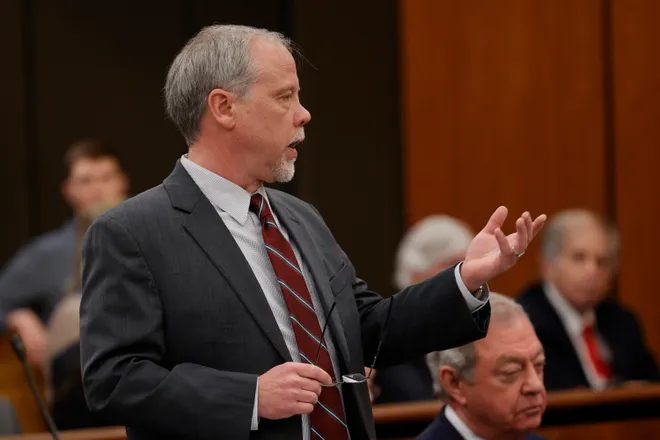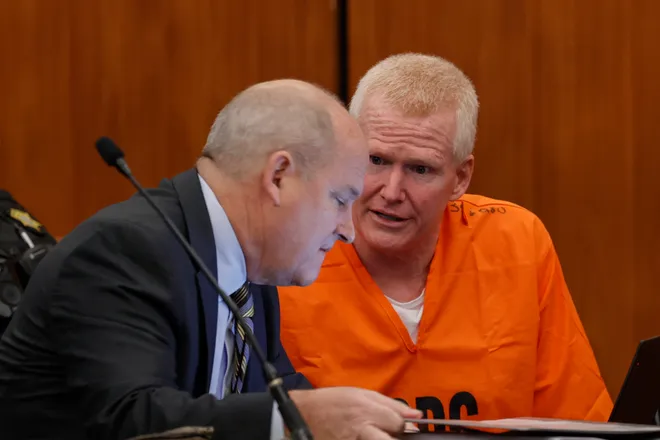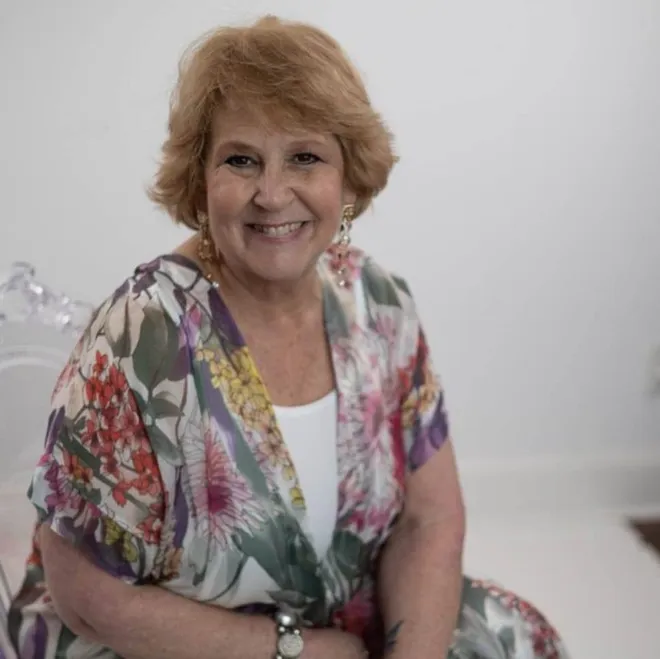Judge limits witness questioning, sets legal standard for Alex Murdaugh jury tampering case
GREENVILLE, S.C. — Convicted murderer and confessed fraudster Richard "Alex" Murdaugh entered a courtroom in the South Carolina state capital Tuesday smiling and warmly greeting his attorneys and courtroom staff.
But the smiles were soon replaced by more serious looks of concern, and by the time the disbarred Hampton attorney exited the courtroom in shackles, it was clear the post-conviction road to a possible retrial would not be an easy one.
The rules of engagement have been outlined and the stage is now set for a hearing into jury tampering allegations surrounding the double murder conviction of notorious former attorney Alex Murdaugh, and Murdaugh's quest for a possible retrial just became more challenging.
Judge Jean H. Toal, a retired South Carolina Supreme Court Chief Justice ordered to hear the jury tampering matters, held a status conference and procedural pre-hearing Tuesday morning in Columbia, South Carolina, and made some preliminary rulings that arguably handed Murdaugh's legal defense several major setbacks ahead of the Jan. 29 hearing.
Murdaugh was convicted on March 2 of the June 2021 murders of his wife and younger son and sentenced to two consecutive life sentences. In early September, Murdaugh's attorneys announced they would be seeking a new trial based on jury tampering allegations against Colleton County Clerk of Court Rebecca Hill, who oversaw the inner workings of the six-week trial in Walterboro, South Carolina.
Here is how Judge Toal intends to conduct the hearing into those allegations.
Murdaugh deserves a hearing on jury allegations, says judge
Tuesday's conference was held to accomplish several matters, chief of which was to determine if an evidentiary hearing was even needed and required by law.
Judge Toal ruled the hearing would move forward as scheduled and is set to begin on Jan. 29-31 in Columbia. Toal stressed that the hearing, including the questioning of jurors, would be conducted in open court, with public and media access. Court TV will broadcast the hearing as a pool source for other media, in addition to pool photographers for "still" photos.
However, the privacy and identity of the jurors will remain protected. The jurors will be referred to by number only, and pool media will be instructed not to show images of the jurors.

Judge sets legal standard for Murdaugh jury tampering case
One of the most important decisions in the case involved the legal standards involved: what was the standard of proof, and who had the burden of proof?
Murdaugh's attorneys opened the hearing with arguments based on Remmer vs. United States, a decision that states that proven improper contact with a juror was enough to justify a retrial, regardless of whether or not that contact resulted in prejudice.
Early in the status conference, Judge Toal announced that she would be using the legal standard and precedent set by South Carolina vs. Green, a 2020 S.C. Supreme Court decision that requires that actual prejudice must be proven to get a new trial.
This means that improper contact or improper conversations with a juror alone may not be enough to grant a retrial if there is no evidence the juror or jurors in question were prejudiced into making a decision.
The presumption of prejudice by improper contact "is not the way to examine this issue, but with specific evidence," said Toal.

Who will testify in the Alex Murdaugh, Becky Hill matter?
Judge Toal also clearly outlined the primary witnesses she intends to hear from or question.
Despite arguments from Murdaugh attorneys Richard Harpootlian and Jim Griffin, Toal stated that she would be questioning only the 12 jurors who deliberated on the case and reached the guilty verdict — not the alternates, and not jurors who were dismissed before deliberating.
This may prove the most damaging decision of the day for Murdaugh's team. Most, if not all, of Murdaugh's arguments, hinge on the testimony and affidavits of an alternate juror and a dismissed juror referred to in the courtroom as the "egg lady" because she asked to retrieve a dozen eggs from the jury room before leaving.
However, Toal indicated that Murdaugh's attorneys are welcome to submit a written proffer and she could potentially reconsider that position during the hearing.
Judge Toal: 'This is not the trial of Becky Hill'
During the hearing, it became clear that Murdaugh's team planned to attack Hill's character and credibility. In addition to the jury tampering allegations, Hill is also under investigation for ethics complaints that involve the alleged misuse of public office and public money. She also recently admitted to plagiarism when she wrote the now controversial and recently "unpublished" book, Behind the Doors of Justice.
Harpootlian made several comments suggesting that all of these allegations were relevant to "impeaching" Hill as a credible witness.
But Toal stated that she planned to limit the focus of the Jan. 29 hearing to what happened in the courthouse during the trial only, with a particular focus on interactions between Hill and the jurors.
"This is not the trial of Mrs. Hill," said Toal. "This case is very focused on the jurors and the clerk of court, as I see it."
"This is not the time to explore every mistake or incorrect statement or false statement ever made by this witness," said Toal. "I don't think it's necessary or proper to explore each and every impropriety."
Hill, who has denied the jury allegations, is expected to take the stand after the jurors are questioned by Toal. She may invoke her Fifth Amendment rights on a question-by-question basis.

How will the Murdaugh jurors be questioned?
Judge Toal outlined the process by which she planned to interview the jurors.
The jurors, who will kept out of the courtroom before testifying, will be questioned individually in open court by Toal to determine primarily if there was improper contact, and if it influenced their verdict.
Once questioned, the jurors would then be seated in the jury box where they may later be questioned as a group, after which they will all be dismissed.
By law, jurors will not be required to answer certain questions that pertain to details of their actual deliberations.
Who would likely not be allowed to testify?
In addition to identifying the primary witnesses, Toal also indicated who she would not allow to testify. That list included attorneys involved in the trial, retired judge Clifton Newman, who presided over the murder trial and who sentenced Murdaugh, attorneys for the jurors, and law enforcement officers.
She may also consider other witnesses once the hearing is underway.
Disclaimer: The copyright of this article belongs to the original author. Reposting this article is solely for the purpose of information dissemination and does not constitute any investment advice. If there is any infringement, please contact us immediately. We will make corrections or deletions as necessary. Thank you.







